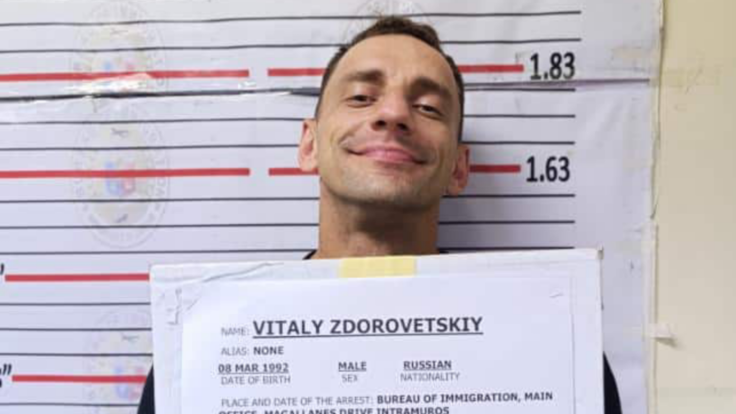YouTuber Vitaly Zdorovetskiy Jail Update: Russian's Bail Request Denied, Netizens Share 'Deplorable' Conditions Of PH Prison
Russian-American YouTuber Vitaly Zdorovetskiy has been denied bail and transferred to a maximum-security prison in the Philippines

Russian-American content creator Vitaly Zdorovetskiy has been denied bail by authorities in the Philippines and transferred to a maximum-security prison in Muntinlupa City. The move has triggered alarm among his followers, with widespread concern over prison conditions and the growing legal risks facing online personalities operating abroad.
Bail Rejected and Maximum-Security Transfer
Zdorovetskiy appeared in court this month facing multiple charges, including unjust vexation, harassment, theft, trespassing, and filming individuals without their consent. On 17 June 2025, the Philippine Bureau of Immigration rejected his application for bail, citing the potential impact on ongoing deportation proceedings. Officials argued that releasing him could compromise legal integrity and place undue strain on judicial processes.
Following the ruling, Zdorovetskiy was moved from administrative detention at Bicutan to a maximum-security prison run by the Bureau of Jail Management and Penology (BJMP) in Muntinlupa, located south of Metro Manila. Immigration Commissioner Joel Viado stated that Zdorovetskiy is expected to remain in custody there until his legal trials are resolved.
Netizens Expose Deplorable Prison Conditions
Social media users and online commentators have drawn attention to the prison's reportedly harsh conditions. Posts shared on Reddit and X (formerly Twitter) describe the facility as overcrowded and poorly ventilated. Several accounts allege that inmates may face extreme heat, lack of sanitation, and insufficient food.
While these claims are difficult to verify independently, they have gained traction among Zdorovetskiy's fanbase and international observers.
Legal and Diplomatic Stalemate
Legal experts have noted that the charges against him, while not considered the most serious under Philippine law, could result in long custodial sentences. If convicted on all counts, Zdorovetskiy may face up to 24 years in prison. Under local procedure, pre-trial detention can last up to three years in certain cases.
The content creator, who holds both Russian and American citizenship, has not received public diplomatic support from either nation. Philippine officials have confirmed that he is being treated as an 'undesirable alien' and will not be deported until all legal matters are concluded. This has left him in a complex legal limbo, without a clear timeline for trial or release.
Interior Secretary Jonvic Remulla stated that Zdorovetskiy's online fame would not influence the outcome of proceedings. He added that all foreign nationals are expected to abide by local laws and that there would be no special treatment in this case.
Zdorovetskiy rose to prominence through viral prank videos and social media stunts, many of which have drawn criticism over ethical and legal boundaries. His arrest in the Philippines has reignited debate about the accountability of digital influencers when operating abroad, and the limits of public tolerance for content that breaches privacy or safety norms.
Vitaly Zdorovetskiy's time in jail shows that online fame does not protect people from serious problems. Making prank videos in another country can lead to trouble if the rules are different. His case shows that internet stars must follow the law wherever they go. Many people are now talking about what is fair and what is not when it comes to content creators. This situation may change how influencers act when they travel and make videos.
© Copyright IBTimes 2025. All rights reserved.




















